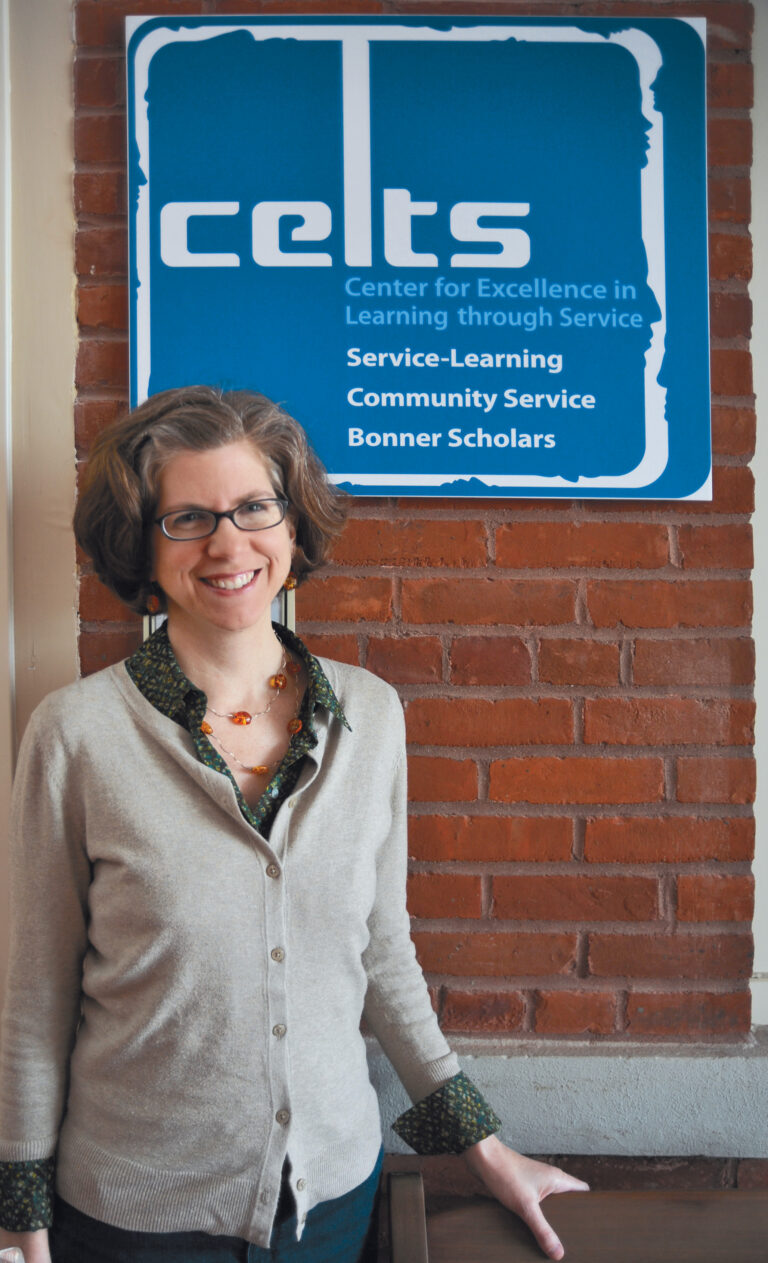Today, Berea College’s Center for Excellence in Learning through Service (CELTS) educates students for leadership in service and social justice through the promotion and coordination of academic service learning and student-led community service.
CELTS grew out of a strategic planning process in the late 1990s that charged it with bringing all of Berea’s student-led community service programs under one roof. Currently, it houses the Berea Buddies program, One-on-one Tutoring, the Berea Teen Mentoring program, an Adopt-a-Grandparent program, an environmental outreach organization called HEAL, the Berea College Collegiate Chapter of Habitat for Humanity, the Hispanic Outreach Project, and a community outreach program called People Who Care. CELTS also works closely with professors on campus who make the pedagogical decision to incorporate service learning into their curriculum. The center hosts a weeklong seminar geared toward faculty development in the summer and offers assistance to accommodate service learning such as transportation, small grants, and workshops open to faculty, staff, and other community partners to encourage this.
Learning in the workplace.
The Center’s director is Ashley Cochrane, who began her work at Berea College in 2003, when CELTS was still young and focused on expanding the service-learning program. Ashley says that her interest in service began when she was an undergraduate at the University of Virginia, where she was very involved with Madison House, a student community-service organization. It was at this time that she began to contemplate the role of service in her education. She says, “In college, I was searching for connections between what I was studying and what was happening in the world around me. The community service center is where I was able to explore these questions.”
After earning her bachelor’s degrees in 1995 in sociology and religious studies, Ashley worked as an AmeriCorps*VISTA at a refugee resettlement agency in Atlanta, Georgia. She’d already had experience with direct service and volunteerism, but it was while working in Atlanta that she began to ask herself “What are ways to effect social change in addition to direct service?” This question led her back to Appalachia and eventually to further her education. She states, “That question has guided my whole career.”
A year after she’d arrived in Atlanta, she says, she was also drawn back to Appalachia, simply because she “desperately missed the mountains.” During this time, she says, “I went back to the mountains to try to figure out what was drawing me back. I learned that there were many things that drew me back. I missed the landscape of the mountains; I missed a sense of community that I found when I was in the mountains; I missed the type of work I was able to be part of in the mountains; I missed a way of living closer to the land and the seasons that I had learned during my time in the mountains.” She took various positions in Pennsylvania and southwestern West Virginia including an organic vegetable farm and work as a community organizer with a small grassroots, membership-based organization. She says, “I took a lot of time trying to find what gave me energy and what took energy away from me.”
She eventually decided to attend graduate school at the University of Kentucky to study counseling psychology in an effort to explore the way individuals are impacted by community issues. While there, she worked in assisting adult survivors of abuse, particularly women who were survivors of sexual, physical, and emotional abuse. She says “this training laid a foundation for understanding adult identity development and a feminist model of empowerment and change, as well as a foundation of communication skills.”
After she graduated from UK, Ashley moved to Berea, taking a position at the Comprehensive Care Center (CCC) in Irvine and commuting to Estill County. Here, Ashley worked as a mental health counselor mainly in the interest of community-oriented mental health. She says even while working in Irvine, she felt she needed to be involved with larger-scale community organizations and events working toward social change. She continued working with the CCC until 2003, when she applied for a position as a service-learning coordinator with CELTS. Though she hadn’t had prior experience in service learning, Ashley says she is grateful that Berea College saw potential in her to fill the position.
Now working as the Director of CELTS since 2011, Ashley is able to coordinate both service learning and community outreach in order to create change in multiple facets of community concern. In describing her work, Ashley observes that, “Every project that CELTS takes on is a collaboration. The most successful projects are those where multiple people and organizations work together collaboratively, and where everyone who is involved learns something.” She not only measures a project’s success in terms of changes in the community and the environment, but also in terms of student learning and growth.
When asked what it’s like to work with students on a daily basis, Ashley shows nothing other than complete enthusiasm. She values her ability as the center’s director to help undergraduate students find their place in community service and discover ways that they can effect social change. She says, “It’s such a gift to be a part of CELTS because it gives me a chance to work with students who are asking the same questions I was about what they can do to strengthen communities and work toward positive social change. I get to help them begin their own journey.” She adds that while watching students grow in community service, she also continues to grow herself, stating “I have the best job at Berea College.”


